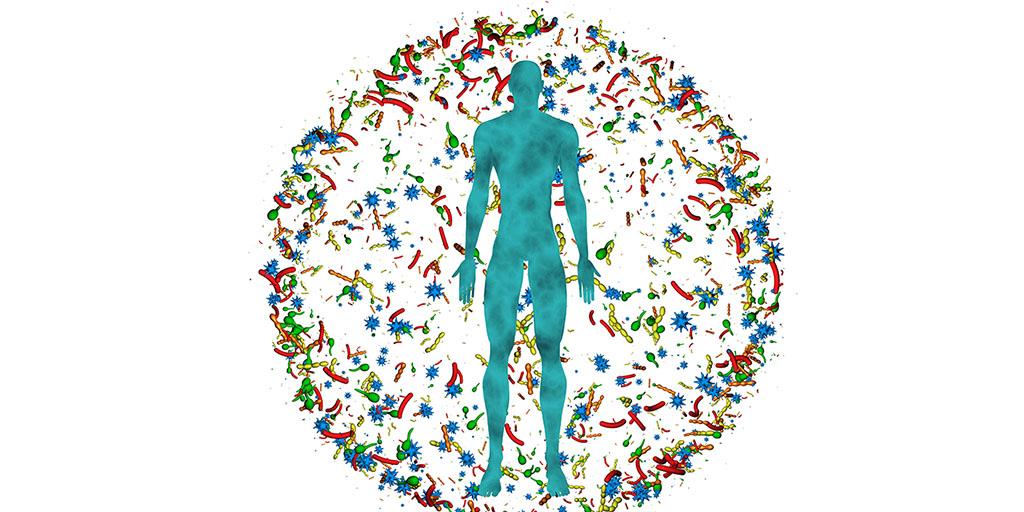The Microbiome and Athletic Performance: Exploring the Hidden Factors Behind Trail Running Success
In the world of trail running, where every step can dictate the difference between victory and defeat, athletes are constantly seeking innovative ways to enhance their performance. while training regimens and proper nutrition have long been established as cornerstones of success, a less visible yet equally crucial player has emerged from the shadows: the microbiome. This complex community of microorganisms residing in our bodies holds profound implications for athletic performance, influencing everything from inflammation to nutrient absorption. In this article, we delve into the intersection of microbiome research and athletics, uncovering how a deeper understanding of these tiny inhabitants can lead to notable strides in trail running performance. As trail runners increasingly turn to science for a competitive edge, the microbiome may well hold the key to unlocking new levels of endurance and resilience on the rugged terrain.
The Connection Between Gut health and Endurance: How the Microbiome influences Performance
The relationship between the gut microbiome and athletic performance is an emerging field of research that underscores the critical role our digestive health plays in endurance sports.Recent studies have revealed that a diverse and balanced gut microbiome can enhance an athlete’s performance by:
- Improving Nutrient Absorption: A healthy microbiome can break down complex carbohydrates, allowing better access to energy sources during intense activities.
- Boosting Immune Function: A well-functioning gut microbiome supports immune health, reducing the frequency of illness that can sideline training.
- Regulating Inflammation: Certain gut bacteria produce short-chain fatty acids that help lower inflammation and promote recovery.
Furthermore, the connection between gut health and mental state is also significant for endurance athletes. Athletes exhibiting higher gut diversity ofen report enhanced mood and mental clarity, which can lead to improved focus and motivation during competitions. Key factors in maintaining a balanced microbiome include:
- Diverse Diet: Incorporating a variety of fiber-rich foods like fruits, vegetables, and whole grains can nourish beneficial gut bacteria.
- Hydration: Adequate fluid intake is essential not only for performance but also for the effective functioning of the gut.
- Probiotics and Prebiotics: Supplements and foods that contain probiotics (like yogurt) and prebiotics (like garlic and onions) can definitely help cultivate a healthy gut surroundings.
| Microbiome Benefits | Impact on Performance |
|---|---|
| Enhanced Energy Metabolism | Increases endurance with efficient energy use |
| Stronger Immune Defense | Prevents sickness and maintains training consistency |
| Reduced Recovery Time | allows for more frequent training and improved results |
Optimizing Your Microbiome: Nutrition and Probiotics for Trail Runners
Trail runners often push their bodies to limit, so ensuring optimal gut health is crucial for peak performance. the microbiome, a complex community of microorganisms residing in the gut, plays a significant role in nutrient absorption, immune function, and even mental well-being. To nurture this ecosystem, trail runners should prioritize fiber-rich foods such as:
- Whole grains
- Fruits and vegetables
- Legumes and nuts
- Fermented foods like yogurt and kimchi
Moreover, integrating probiotics can enhance gut health and improve overall stamina. Choices like kombucha, kefir, and certain cheeses not only provide beneficial bacteria but also support digestion during intense training sessions. Research indicates that consistent probiotic consumption can lead to better recovery times and reduced gastrointestinal discomfort, helping runners stay on track.Here’s a quick overview of some recommended probiotics:
| Probiotic Source | Benefits |
|---|---|
| Kefir | Supports gut health and boosts immunity |
| Kombucha | Enhances energy levels and aids digestion |
| Yogurt | Rich in protein and promotes gut bacteria diversity |
The Role of Microbiome Diversity in Recovery and Injury prevention for Athletes
The diversity of the microbiome plays a crucial role in enhancing athletic performance, notably in recovery and injury prevention. Research has indicated that a well-balanced microbiome can lead to improved nutrient absorption, enhanced immune function, and reduced inflammation, all of which are essential for athletes. A diverse array of gut bacteria encourages a varied metabolic response, facilitating the breakdown of different nutrients, including carbohydrates, fats, and proteins. This can directly support stamina and provide energy during prolonged activities such as trail running.
Furthermore, the influence of microbiome diversity extends beyond immediate performance impacts. Athletes with a rich variety of gut bacteria have shown a lower incidence of injuries and quicker recovery times post-exercise. Key factors include:
- Increased resilience against gastrointestinal issues: A diverse microbiome can better withstand the stress induced by intense training.
- Enhanced immune responses: Promoting a healthy microbial balance helps combat illness and reduces downtime from training.
- Anti-inflammatory properties: specific strains of gut bacteria can mitigate inflammation, decreasing the risk of overuse injuries.
| Microbiome Benefits | Impact on Athletes |
|---|---|
| Diverse Microbial Community | Better nutrient utilization |
| Increased Short-Chain Fatty Acids | Enhanced recovery and reduced muscle soreness |
| Bacteria that Produce Vitamins | Boosted energy levels and overall well-being |
To Conclude
the intricate relationship between the microbiome and athletic performance offers a captivating avenue for exploration within the realm of sports science. As trail runners seek every possible edge to enhance their endurance and recovery, the emerging evidence regarding gut health and its impact on physical capabilities cannot be overlooked. With continued research shedding light on personalized nutrition strategies and the balancing of microbial ecosystems, athletes have the potential to revolutionize their training and performance. As we move forward, understanding and harnessing the power of the microbiome may not only redefine the boundaries of endurance sports but could also lead to more resilient and healthy athletes on the trail. Keep an eye on this evolving field, as it promises to unveil new strategies for optimizing performance in the great outdoors.

